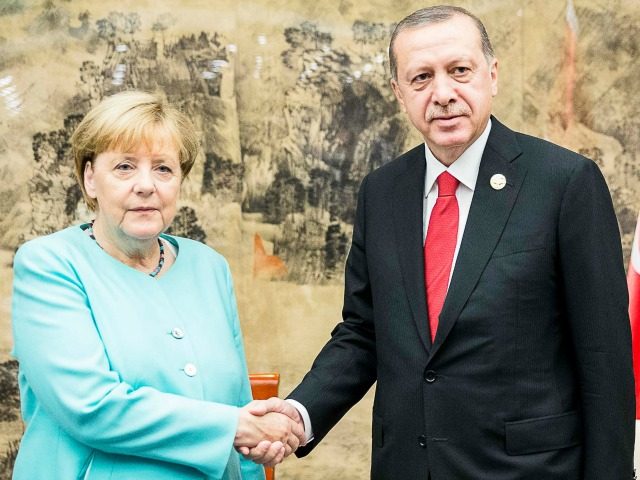German Chancellor Angela Merkel has advocated giving the Turkish government billions of more euros for Syrian asylum seekers in order to reinforce the European Union (EU) migrant pact, while EU leaders agreed to give Turkey less money to prepare for EU accession.
The German chancellor said Turkey had handled the migrant issue well and the EU-Turkey pact had greatly reduced the number of migrants flowing into Europe. “This is where Turkey is doing great things,” Ms. Merkel said at the EU summit in Brussels earlier this week, Die Welt reports.
Turkey is set to receive three billion euros in the near future with another three billion being planned for a later date. Other EU leaders agreed with the proposition as none wanted to create a possibility of breaking the EU-Turkey migrant pact.
The migrant pact has not been without problems over the last year and a half as the government of Turkish President Recep Tayyip Erdoğan has repeatedly made threats to end the agreement and send migrants to Greece. The first issue with the pact was over visa-free access to the EU for Turkish citizens which has still yet to happen.
Following the attempted coup in the summer of 2016, Turkey has made increased demands of the EU and had threatened at one point to send 3,000 migrants a day to Greece.
While Merkel praised the Turks for their handling of the migrant crisis, she expressed concern at the growing number of foreign journalists being arrested by the Erdoğan regime. One of the most famous journalists to have been arrested on terror charges is German Die Welt writer Deniz Yucel.
Earlier this year, Merkel made a plea to Erdoğan to release Yucel saying: “Independent journalism must be able to exist; journalists must be able to do their job.” Yucel still remains in Turkish custody.
The EU leaders have decided to reduce the amount of money to Turkey for pre-accession aid. Currently, the EU plans to give Turkey 4.5 billion euros from a period between 2014 and 2020 which is to go toward various grants to the government and civil society projects. The funds to the projects will remain, but those going to the government directly will drastically decrease.
Whether or not Turkey will ever become a member of the political bloc is also up for debate. Earlier this year Austrian Foreign Minister Sebastian Kurz promised to veto accession talks and after winning last Sunday’s Austrian election he will likely further his opposition to Turkey when sworn in as chancellor.

COMMENTS
Please let us know if you're having issues with commenting.